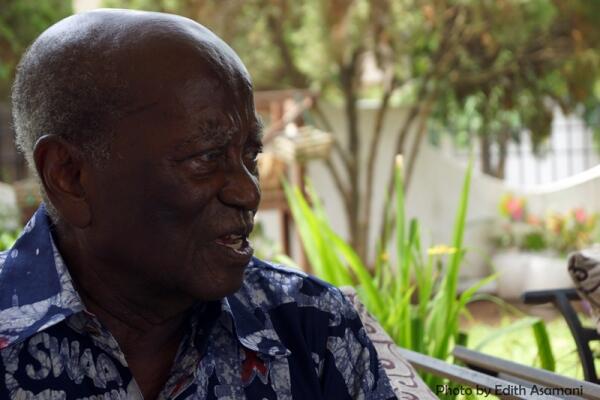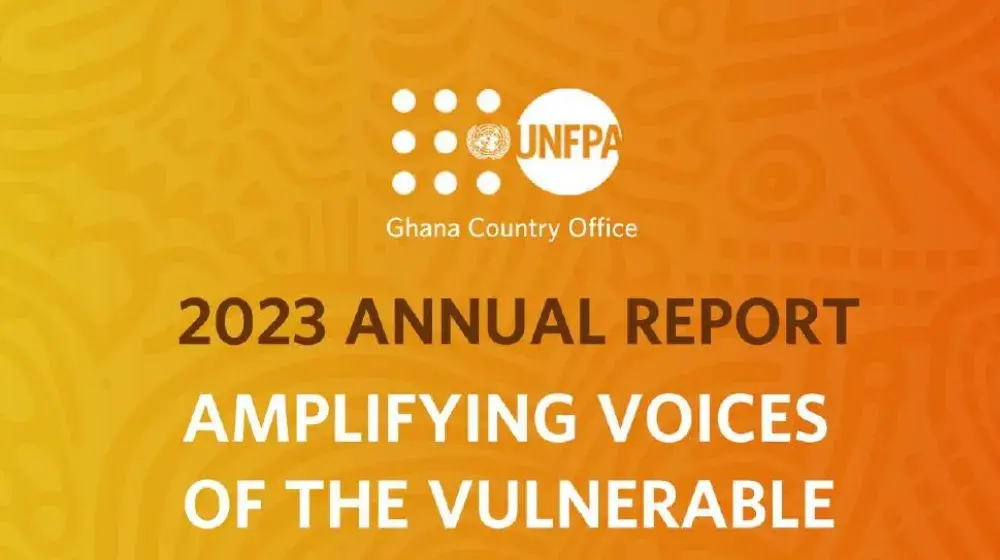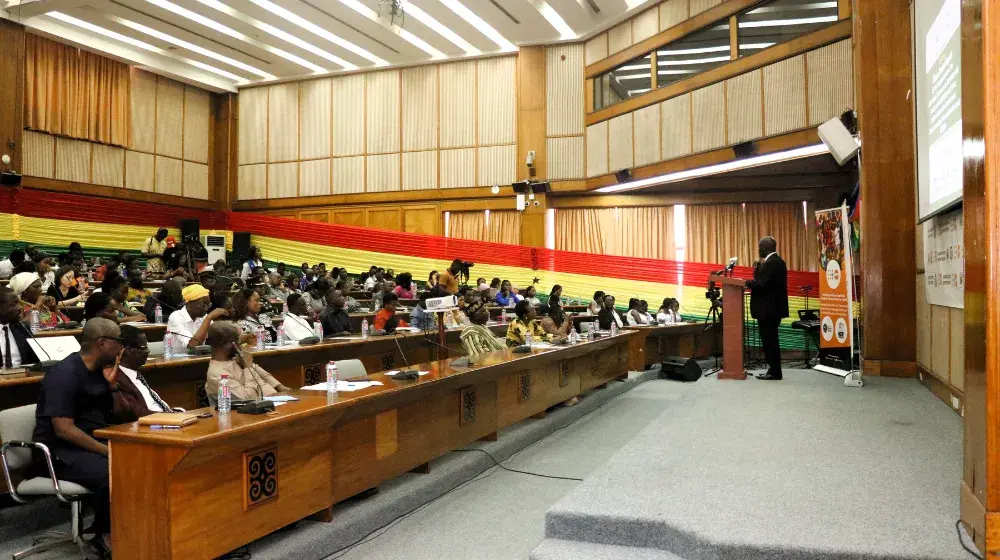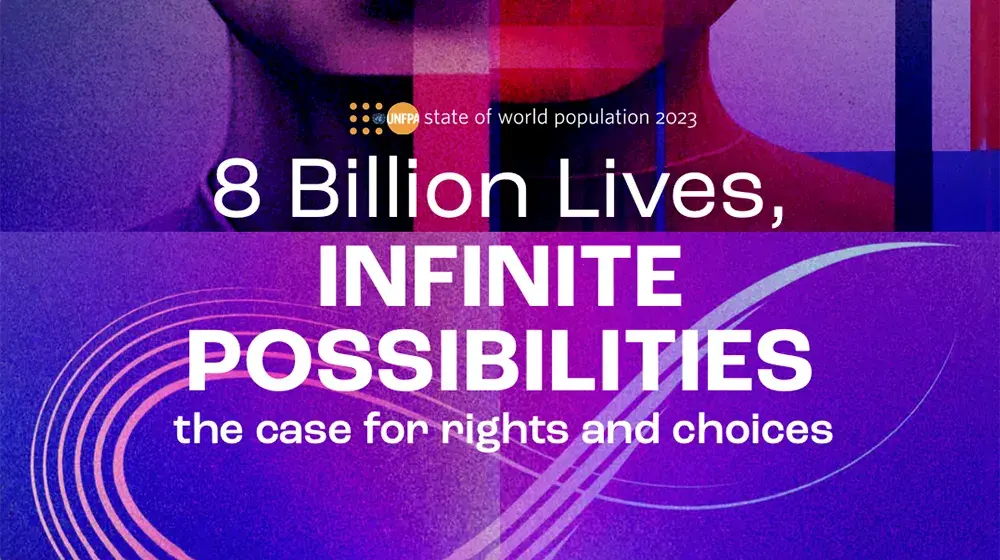Maternal mortality fell by nearly half (50%) between 1990 and 2010 with more women now having access to education, work and political participation, according to the global report released by UNFPA in February 2014 on the review the International Conference on Population and Development – ICPD beyond 2014.
‘Drawing on data from 176 countries, expert consultations and academic research, and a series of regional and thematic consultations, the report shows significant achievements over the past 20 years’ said Dr. Babatunde Osotimehin, UNFPA Executive Director in his opening remarks at the launch of the ICPD beyond 2014 global report in New York which was co-chaired by UN Secretary General.
The report which stated that nearly 1 billion people have moved out of extreme poverty also reveals that more children, particularly girls, are going to school, with primary school enrolment rates approaching 90%. Dr. Osotimehin, posited that aside the enormous success chalked the report also ‘reveals in stark detail the persistent inequalities and discrimination threatening to derail development. In many countries progress is limited to the wealthy, with enormous numbers of people being excluded from the process and benefits of development. More than half of the absolute gains in global income from 1988 to 2008 went to the richest 5%. None went to the bottom 10%’.
According to the report, around 800 women will die today giving life - maternal death, women status, child marriage and many of the concerns of the Cairo Conference have seen little progress over the past decades. The report also revealed that there is no country in which women are equal to men in political or economic power. Too many people, particularly the poor, still live without access to sexual and reproductive health services, including family planning. Last but not the least , it is disclosed that laws designed to protect the rights of women and girls, where they exist, are often not enforced.
At the core of the Global Report, are inequalities-the cost of inequality for dignity and for sustainable development, and how investments in gender equality and rights, in youth, health and education and securing the human rights of all are essential to deliver sustainable global developments.
What is ICPD?
Two decades ago specifically in September 1994, the Cairo Conference came out with a visionary 20-year programme of action for improving the quality of life of every person, ensuring sustained economic growth and achieving sustainable development. Delegates from all regions and cultures recognized that increasing social, economic and political equality, and access to sexual and reproductive health and rights, is the basis for individual well-being, lower population growth and sustainable development. That programme of action was central to the Millennium Development Goals 16 years later.
In view of the assessment by the General Assembly of the United Nations that the goals and objectives of the programme of action will not be achieved by the end of its time frame, the assembly adopted in December 2010 the General-Assembly Resolution 65/234 on the follow-up to the implementation of the programme of action beyond 2014.
The resolution requested a review of the implementation of the programme of action at the country, regional and global levels on the basis of the highest-quality data and analysis of the state of population and development, taking into account the need for a systematic, comprehensive and integrated approach to population and development, responding to new challenges and the changing development environment and reinforcing the integration of the population and development agenda in global processes related to development.
Post-Launch interview with Prof. Fred Sai
Prof. Fred T. Sai, the distinguished Ghanaian family planning health physician, who chaired the 1994 ICPD conference where the programme of action was negotiated, shared his thoughts with UNFPA Ghana on the progress of the country in advancing the Cairo agenda.
Maternal Mortality
Prof. Sai observed that although maternal mortality is coming down, ‘some of the activities that Ghana should undertake to bring it down rapidly are not being undertaken. One is the family planning and contraceptive services. Family planning and contraceptive services are still well below where they should be if Ghana wants to attain the Millennium Development Goals.
‘To me family planning is really the number one health promotive and preventive mechanism for bringing down maternal mortality. There is absolutely no reason why we should be giving free maternity care and at the same time ask people to pay for family planning and contraceptive services’ he posited.
The Former President of the International Planned Parenthood Federation expressed worry over religious and cultural practices which still withhold family planning from adolescents because it will make them promiscuous. ‘As of now we know that abortion takes about 13% of maternal mortality. If one condition does this then we need to do something about that. The research is clear from many countries that with good contraceptive service and with liberal abortion laws the abortion rates are brought down. With our laws, if we can implement them properly we should make progress with maternal mortality reduction’.
Abuse of women
‘One area of activity that I think we have not done too well is making boys and young men feel responsible for their sexual behaviour. That there is nothing ennobling in going to sleep with a woman or girl when you have absolutely no intention of carrying on. There is far too much permission for men to just make women pregnant and walk away and nobody is doing anything about it. And until the proper laws are implemented to stop tolerating the abuse of women we are not going forward’, he said.
What is the way forward?
‘We want our women equal with our men. That should be the philosophy for the next ICPD statement. The other thing is the handling of the poor. We have done relatively well in bringing down poverty. But I think with the world situation and with development as it is going, we are creating a wealthy class and leaving the poor behind’ he stated.
Prof. Sai observed that Ghana can move far beyond where she finds herself given that the country have got the structures in place, the human resource base who have been lead advocates on ICPD issues and that the country does not have too much of religious or cultural antipathy against the global consensus.
He concluded thus: ‘Until our politicians promote these (the Cairo agenda) almost as strongly as they promote their agenda to be in power these things will not move forward’
Writer’s Email: enock.gyan2@gmail.com




